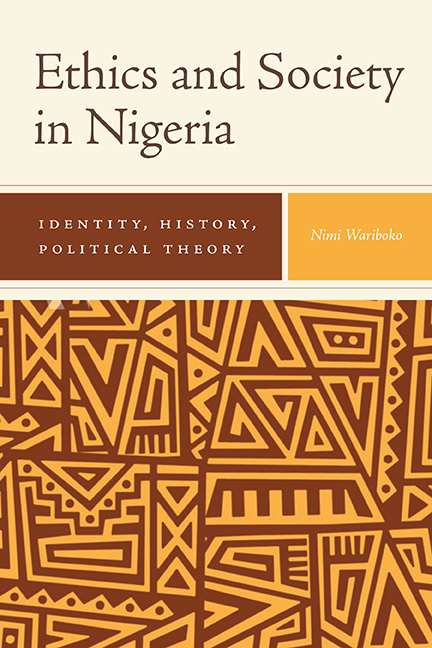Book contents
- Frontmatter
- Dedication
- Contents
- Foreword
- Preface
- Acknowledgments
- Introduction: Dead Gods, Divine Kings, and Deadly Politicians
- 1 The Emergence of the Lotus-Self: Personhood and Identity
- 2 Dead Gods and People's Revolts: Political Theory in Religious Acts
- 3 The Divine King and His Five Bodies: Living History and the Logic of Interreligious Dialogue
- 4 Governance and Deadly Politicians: History as Cultural Criticism
- 5 History without Force: Finding Present Space and Place of Time
- 6 Constructing Nigeria's Greatness: Neglected Paths of Community, Narratives, and Care of the Soul
- 7 Mythos, Virtues, and National Transformation: The Search for a Standard of Citizenship Moral Behavior
- 8 African Traditional Religion and Critical Theory: A Framework for Social Ethics
- Notes
- Bibliography
- Index
3 - The Divine King and His Five Bodies: Living History and the Logic of Interreligious Dialogue
Published online by Cambridge University Press: 03 September 2019
- Frontmatter
- Dedication
- Contents
- Foreword
- Preface
- Acknowledgments
- Introduction: Dead Gods, Divine Kings, and Deadly Politicians
- 1 The Emergence of the Lotus-Self: Personhood and Identity
- 2 Dead Gods and People's Revolts: Political Theory in Religious Acts
- 3 The Divine King and His Five Bodies: Living History and the Logic of Interreligious Dialogue
- 4 Governance and Deadly Politicians: History as Cultural Criticism
- 5 History without Force: Finding Present Space and Place of Time
- 6 Constructing Nigeria's Greatness: Neglected Paths of Community, Narratives, and Care of the Soul
- 7 Mythos, Virtues, and National Transformation: The Search for a Standard of Citizenship Moral Behavior
- 8 African Traditional Religion and Critical Theory: A Framework for Social Ethics
- Notes
- Bibliography
- Index
Summary
What the history of institutions ultimately demands is not good stories of the past, but unearthing the potentialities inherent in them that their actualization and functioning betrayed. So the question “how do we repeat our heritage in the reconstruction of our identity” is not about imitating the past, but about redeeming the failures of our institutions or “repeating” their inherent but betrayed possibilities.
Introduction
Any serious attempt to reconstruct the social identity of Nigeria and define an environment for human flourishing must come to terms with religious pluralism and address how Muslims, Christians, and worshippers of traditional religions can coexist in peace all over the country. In this present cauldron of politics, how do interreligious relations function? The strained relation between the two Abrahamic faiths is ever threatening to blow up the country. Under the hammer of this pressure I will turn to African traditional religion to ferret out principles of dialogue deeply rooted in the commonly shared indigenous cultures of the adherents of both religions. We will examine the fecundity, density, multiplicity of the life that is in the sovereign flesh of the Ooni of Ile-Ife, the divine king of the Yoruba, to discern viable principles of interreligious conflict resolution. We will delve deeply into the political-philosophical categories of Yoruba classical thought on the ontological and ontic dimensions of sacred kingship to figure out how the excess life and flesh of the Ooni can be put into the new use of covering the lack—a space of violence—that has opened in the relationship between Christians and Muslims.
I propose that we enter the discourse of Yoruba sacred kingship, especially the case of the Ooni, through the lens of Jacob Kehinde Olupona as he describes and analyzes the sacred city of Ile-Ife in southwestern Nigeria. We will enter into a conversation with his work to understand the nature of the sacred kingship functioning in a sacred city (Ile-Ife) and its demands on religious ethics. Based on a critical engagement with his book City of 201 Gods: Ile-Ife in Time, Space, and the Imagination I will construct a social ethic of interreligious conflict dialogue based on the Yoruba theory of sacred kingship and political sovereignty.
- Type
- Chapter
- Information
- Ethics and Society in NigeriaIdentity, History, Political Theory, pp. 51 - 72Publisher: Boydell & BrewerPrint publication year: 2019



